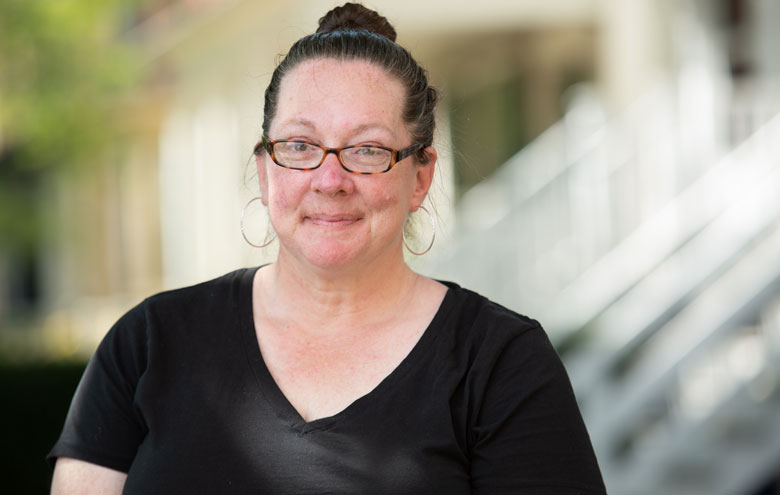Covid-19 and the Human Rights of People Living in Poverty

Last July, ATD Fourth World co-organized* a webinar at the UN in Geneva called “Covid-19 and the human rights of people living in poverty.” Part of the 44th Human Rights Council session, the event highlighted some concerns about initial assistance and recovery efforts.
Olivier De Schutter, UN Special Rapporteur on extreme poverty and human rights, addressed efforts by states to provide social protection schemes during the pandemic. Unfortunately, sometimes these measures do not reach people living in poverty, De Schutter explained. Programs may not cover workers in the informal sector, those with precarious employment, or undocumented migrant workers. Financing is a challenge and often results in only inadequate short-term protections. Even those covered have a hard time accessing assistance because of the digital gap and the overwhelming demand for social services.
Ambassador Shara Duncan discussed what Costa Rica is doing to protect its most vulnerable people. Shahra Razavi, head of Social Protection at the International Labor Organization (ILO), described how Covid-19 affects societies economically and socially. The pandemic, she explained, has demonstrated clearly that we are only as safe as the most vulnerable among us. Ms. Razavi also criticized gender inequality regarding childcare, working conditions, and health protection. In addition, she noted, part of the labor force lacks health benefits.
Eric Hazard, pan-African campaign and policy director at Save the Children, described the pandemic’s impact on children in sub-Saharan Africa. He is concerned specifically about education, but also the pandemic’s indirect impact on protective measures for children generally.
Maryann Broxton, co-coordinator for the ATD-US research project on Hidden Dimensions of Poverty, spoke next. Echoing her own personal experiences, she stated:
- “When we talk about eradicating poverty, we tend to talk about a lack of political will. But this is misleading. Poverty does not exist simply because of a lack of political will. In our world today poverty exists because of deliberate political choices. Poverty does not affect vulnerable people like a natural disaster. Poverty is man-made.”
Ms. Broxton pointed out that people often marginalize others they perceive as having less value. It has become clear that people in poverty are more likely to contract Covid-19. However, the risk factors they face are institutional and have been in place for a very long time. “Where you live, the food you eat, your housing, and the type of job you have determine everything in your life,” Ms. Broxton stated.
While many people of color experience poverty, they also face segregation and institutional racism. Poverty is not all about money. In fact, poverty is multidimensional.
- “[Poverty] is shame and stigma, isolation, unrecognized voice, and exclusion from participation. It is purposely being denied control or power over your own choices and life.”
Ms. Broxton also pointed out that “People in poverty are constantly held accountable for their level of poverty, as if their personal choices/actions alone are responsible for it. But yet governments are not held accountable for the deliberate choices that push people into and maintain poverty, or deepen the level for others.”
“Are we willing,” she asked, “to share the space and power to ensure that we include people with the hardest experiences of poverty as legitimate equal partners whose voice and input carry as much weight as those traditionally looked to for solutions in the decision-making process?”
Ms. Broxton concluded by saying, “…the one thing that COVID-19 has done extremely well is to demonstrate just how much our wellbeing is tied together. I will only be ok if a person living in Madagascar is ok. They will be ok if a person in Germany is ok. They will be ok if a person in Bolivia is ok, and on and on.
“It’s not about charity. It’s about mutuality – believing that the person next door to you or half way around the world has just as much right to equity, dignity, and well being as you do. That is how we make the deliberate choices needed to recover from COVID-19 and end poverty.”
* Other webinar organizers included Global Initiative for Economic, Social and Cultural Rights (GI-ESCR), Franciscans International, and Olivier De Schutter (UN Special Rapporteur on extreme poverty and human rights). Magdalena Sepulveda facilitated the event.
This article is adapted from one published in the recent ATD Fourth World International Policy and Advocacy Newsletter. For inquiries about that newsletter, please contact atdint@atd-fourthworld.org.
Statements of Olivier de Schutter and Shahra Tazavi
Brief webinar report
Video of the webinar
Article Photo: Maryann Broxton, Co-coordinator of the Multidimensional Aspects of Poverty research project in the United States.

